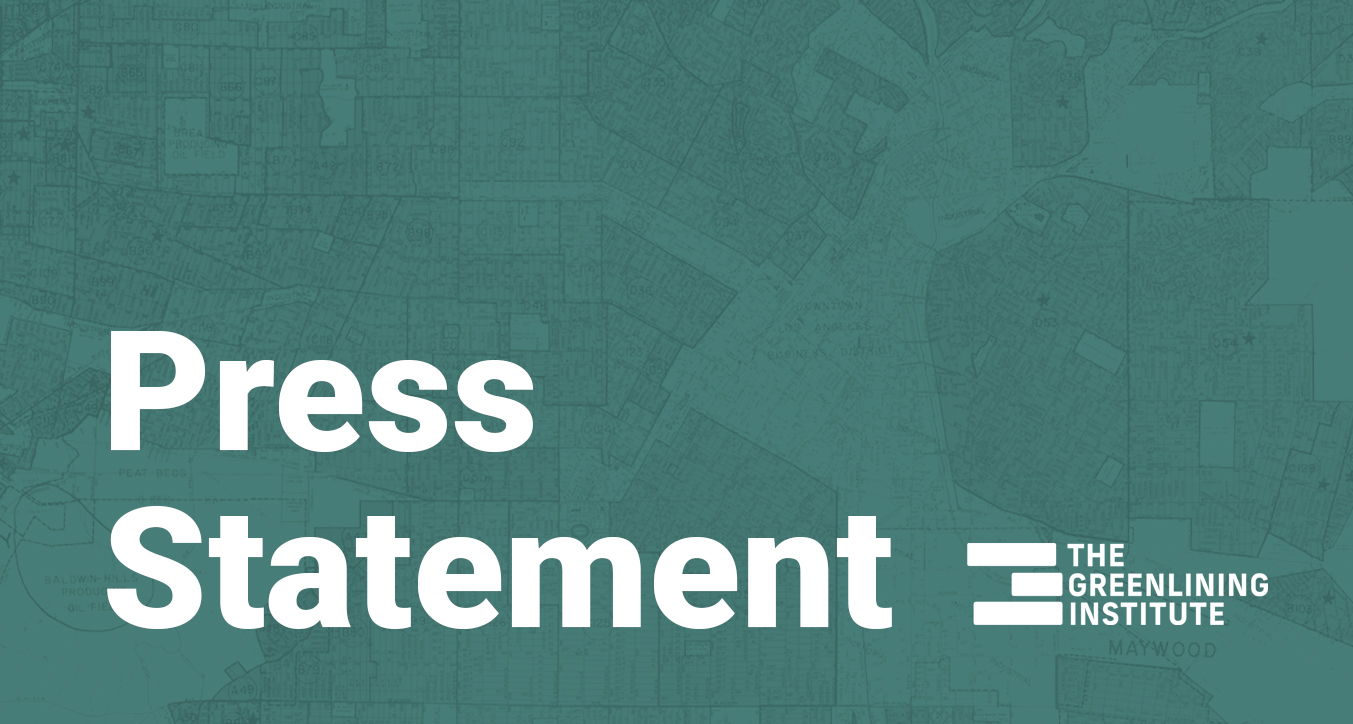New Report: Fintech Lenders – Not Banks – Dominate Mortgage Market, Regulations Must Catch Up

Media Contact
Danielle Bell
SENIOR PROGRAM MANAGER FOR MEDIA RELATIONS
media@greenlining.org danielle.bell@greenlining.orgFintech Lenders Have 2/3 of the Market but Aren’t Regulated Like Banks
Contact: Bruce Mirken, Greenlining Institute Associate Director for Media Relations, 415-846-7758 (cell)
OAKLAND, CALIFORNIA – Fintech (financial technology) lenders, referred to officially as nonbanks, now dominate the home mortgage market in California and across the U.S., a new report from The Greenlining Institute finds. But these businesses are not subject to the same rules as banks, meaning their positive potential could be outweighed by risks of discrimination and threats to the stability of the financial system and housing market.
A Fair Financial System: Regulating Fintech and Nonbank Lenders, released today, lays out these risks and proposes new regulatory approaches at both the state and federal levels.
“The U.S. mortgage market has shifted radically since 2009,” said lead author Rawan Elhalaby, The Greenlining Institute’s Senior Economic Equity Program Manager. “Two thirds of mortgages aren’t written by banks, but by fintech lenders who don’t have to follow the same rules as banks. We know almost nothing about their lending patterns or whether or not they discriminate, and there are reasons for concern about their stability. It’s time for financial regulations to catch up to reality.”
Key findings of the report include:
- Fintech lenders now write two thirds of U.S. mortgages, a 660% increase in market share since 2009. The top three mortgage lenders in California are all nonbanks.
- We don’t know how this shift in the industry is impacting redlined communities and borrowers of color because of a lack of transparency and reporting requirements. In particular, fintech lenders — which have no branches and take no deposits — are not subject to the federal Community Reinvestment Act, a landmark anti-redlining law designed to encourage banks to invest in underserved communities.
- All this is occurring as traditional banks close branches in low- and moderate-income neighborhoods, effectively abandoning their CRA obligations. This has led to increased market share for nonbanks among Black and Latino households.
- The lack of transparency and reporting requirements raises serious questions about the financial stability of fintech lenders. There are few overarching federal regulations covering nonbank mortgage lenders, which tend to have little cash on hand and large amounts of debt.
The report offers several policy recommendations to address these concerns, calling on Congress to modernize the Community Reinvestment Act to cover fintech lenders, and states to act quickly. The report outlines how states like California can enact state-level regulations, including requiring increased lending transparency through the Department of Financial Protection and Innovation, as well as passing a state version of the Community Reinvestment Act. In Illinois, the most recent state to pass a state-level CRA, advocates partnered with legislators to advance a racial equity slate that included these crucial regulations for nonbank lenders.
“State and federal regulations need a drastic overhaul to keep up with these trends and avoid another financial crisis caused by predatory mortgage lending,” said Debra Gore-Mann, President and CEO of The Greenlining Institute. ”These institutions are targeting communities that have been historically denied access to financial products and services from traditional banks. If they continue to be unregulated, that house of cards will collapse on Black and Brown communities first and worst.”
To learn more about The Greenlining Institute, visit www.staging3.greenlining.org.


